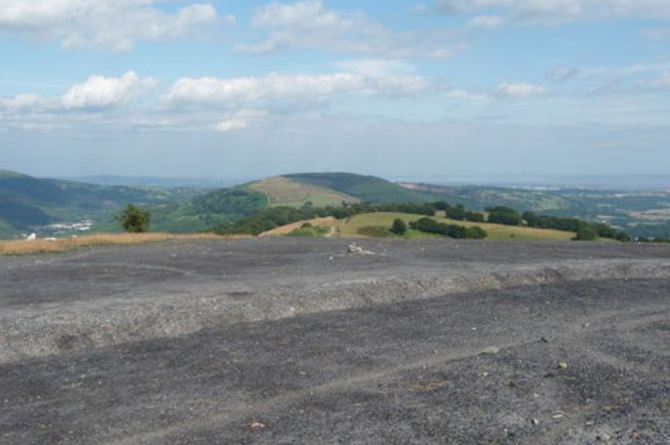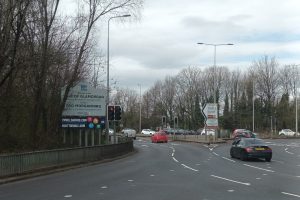SENEDD Members unanimously supported the general principles of “historic, world-leading” proposed legislation on ensuring the safety of coal tips.
Huw Irranca-Davies, Wales’ Deputy First Minister, led a debate on the disused mine and quarry tips bill, which aims to address the legacy of centuries of mining.
If the bill completes its passage through the Senedd, it will establish a public body: the Disused Tips Authority for Wales: charged with ensuring tips do not threaten human welfare.
“This will be achieved by introducing a consistent and a robust system of assessment, registration, management and monitoring of disused tips,” said Mr Irranca-Davies.
The climate change secretary said the bill would update legislation from the late 1960s, providing powers of entry and establishing a lower threshold for intervention.
But, despite unanimous support for the general principles of the bill, opposition members warned of shortcomings including a lack of action to address the aftermath of tip failures.
The bill, which was prompted by a landslide in Tylorstown in 2020, now moves to stage two of the scrutiny process: consideration of amendments in the Senedd’s climate committee.
During the stage-one debate on April 29, Mr Irranca-Davies set out proposed amendments to strengthen the bill by, for example, mandating a minimum frequency of tip inspections.

The MP-turned-Senedd Member outlined plans to create a more comprehensive register of all disused tips and ensure the public is informed of changes to tip categorisation.
He said ministers would seek to strike the right balance between what to include “on the face of the bill” – meaning within the proposed legislation itself – and what will be left to guidance.
Llŷr Gruffydd, who chairs the Senedd’s climate committee, said December’s landslide in Cwmtillery provided a stark reminder of the risks posed by Wales’ mining heritage.
The Plaid Cymru politician said a recurring theme of the committee’s report on the bill was a lack of detail on the key parts of the new system set to come into effect in April 2027.

Mr Gruffydd suggested too much has been left to future guidance, with the “unsatisfactory” approach meaning ministers’ policy intentions are unclear.
He feared leaving the policy detail to guidance could allow a future Welsh Government to make changes without proper Senedd scrutiny.
Mike Hedges, who chairs the legislation committee, agreed. “The Welsh Government is relying too heavily on the use of guidance to deliver the bill’s objectives,” he said.

His finance committee counterpart Peredur Owen Griffiths expressed concerns about the bill’s impact assessment which estimated its total cost at £99m over 15 years.
Mr Owen Griffiths, who represents the South Wales East region, warned the evidence used to inform the impact assessment was lacking, making it difficult for the committee to assess the robustness of cost estimates.

He called for assurances that funding to make tips safe would be distributed based on need and risk rather than on a first-come-first-served basis.
Janet Finch-Saunders, the Tories’ shadow climate secretary, broadly welcomed the bill but suggested major changes are needed. “We don’t believe the bill goes far enough,” she said.
She told the Senedd the bill focuses on disused tip instability but other risk factors – such as pollution, combustion and flooding – would not be taken into account independently.

Ms Finch-Saunders argued the scope of the bill should be extended to include threats to habitats and biodiversity as well as human welfare.
The north Walian warned the bill includes no detail on the legal requirements when dealing with the aftermath of a landslide as she called for a section to be added.
Warning of a tight timetable to pass the bill before the May 2026 election, Mr Irranca-Davies cautioned against expanding its scope “to be a Christmas tree of all things hanging off it”.
Delyth Jewell, Plaid Cymru’s shadow climate secretary, was deeply concerned the bill could stimulate interest from companies in remediating coal tips as a guise for extraction.
“This bill must be amended to prevent it,” she said, pointing to proposals in her South Wales East region to finance the remediation of Bedwas tips through coal extraction.
















